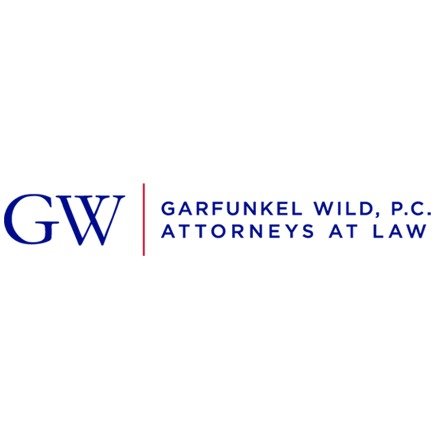Best Corporate Governance Lawyers in New York
Share your needs with us, get contacted by law firms.
Free. Takes 2 min.
Or refine your search by selecting a city:
List of the best lawyers in New York, United States
About Corporate Governance Law in New York, United States
Corporate governance refers to the systems, rules, and practices by which corporations are directed and controlled. In New York, corporate governance law is an essential aspect of business regulation, aiming to balance the interests of a company’s stakeholders, including shareholders, management, customers, suppliers, financiers, government, and the community. Corporate governance in New York is influenced by the New York Business Corporation Law (BCL), federal regulations, and stock exchange requirements that together work to ensure transparency, accountability, and fairness in corporate activities.
Why You May Need a Lawyer
There are many situations in which individuals and businesses may need legal assistance with corporate governance in New York. Common scenarios include:
- Establishing corporate policies and procedures for compliance with laws and regulations
- Drafting and updating bylaws, shareholder agreements, and board charters
- Handling conflicts between shareholders or directors
- Advising on fiduciary duties and potential breaches
- Responding to regulatory investigations or inquiries
- Ensuring compliance with securities laws if the company is publicly traded
- Conducting internal investigations into alleged misconduct or ethical breaches
- Assisting with annual meeting procedures and reporting obligations
- Restructuring boards or management in situations such as mergers or acquisitions
- Navigating whistleblower claims and internal complaints
A skilled corporate governance attorney can provide guidance, protect your interests, and help prevent costly mistakes.
Local Laws Overview
New York's approach to corporate governance is shaped primarily by the New York Business Corporation Law (BCL), which sets forth the requirements for forming, operating, and dissolving corporations. Key local law aspects include:
- Director and Officer Duties: Directors and officers in New York corporations owe fiduciary duties of care and loyalty to the company and its shareholders. This means acting in good faith and avoiding personal conflicts of interest.
- Board Composition: The BCL requires at least one director, but most corporations adopt larger boards. Board structure, term lengths, and election methods are typically detailed in corporate bylaws.
- Shareholder Rights: Shareholders have the right to vote on significant company matters and access certain corporate records. Disputes can arise over voting rights, dividends, and information requests.
- Notice and Meetings: New York law details how corporations should hold meetings and give notice to shareholders and directors. Failure to adhere can result in invalid actions.
- Regulatory Compliance: Companies must comply with state and federal laws, such as securities regulations, depending on their structure and activities.
- Reporting Requirements: Corporations in New York are obligated to file biennial statements and maintain proper books and records.
Violations of these rules can expose corporations and their officers to liability, making legal guidance particularly valuable.
Frequently Asked Questions
What is corporate governance?
Corporate governance refers to the framework of rules, relationships, and processes by which a corporation is directed and controlled. It involves balancing the interests of stakeholders and ensuring responsible management and oversight.
Do all businesses in New York need to follow corporate governance guidelines?
While all corporations must comply with the New York Business Corporation Law, the extent and complexity of governance practices generally increase with the size and public status of the company. Small businesses may have simpler requirements.
What are fiduciary duties?
Fiduciary duties are legal obligations that directors and officers owe to the corporation and its shareholders. These include the duties of care, loyalty, and good faith, all of which require prioritizing the corporation's interests.
How can shareholders influence corporate decisions?
Shareholders typically have rights to vote on major corporate matters such as director elections, mergers, and amendments to governing documents. The extent of these rights is defined by state law and the corporation’s bylaws.
What should be included in corporate bylaws?
Bylaws should define the company’s internal rules including board composition, meeting procedures, officer roles, voting requirements, and conflict-of-interest policies.
Can corporate governance failures lead to lawsuits?
Yes, failures in corporate governance can result in shareholder lawsuits, regulatory action, or penalties. These can arise from breaches of fiduciary duty, conflicts of interest, or transparency failures.
Do private companies need corporate governance policies?
Private companies also benefit from strong governance policies, though legal requirements may be fewer. Good governance can prevent disputes and enhance business performance.
How do New York state laws affect public companies?
Public companies in New York are governed by state laws and must also comply with federal regulations and stock exchange rules, which often impose additional governance requirements.
What is the role of a board of directors?
The board oversees major decisions, appoints and evaluates executives, sets company policies, ensures compliance, and represents shareholder interests.
How can I address a conflict among directors or shareholders?
Conflicts can often be resolved by referring to bylaws, mediation, or seeking legal assistance to ensure fair and lawful resolution.
Additional Resources
Individuals seeking more information on corporate governance in New York may find the following resources helpful:
- New York Department of State, Division of Corporations
- New York State Bar Association - Business Law Section
- Securities and Exchange Commission for federal compliance matters
- Public Company Accounting Oversight Board for audit and financial oversight
- Professional legal organizations such as the Association of Corporate Counsel
These organizations provide guidance, forms, updates on legal developments, and in some cases, referrals to qualified attorneys.
Next Steps
If you need legal assistance with corporate governance in New York:
- Identify the specific governance issue or situation you need help with
- Gather relevant documents such as bylaws, shareholder agreements, and correspondence
- Consult with a qualified corporate lawyer who has experience with New York law
- Discuss your goals and any concerns you have about compliance, liability, or disputes
- Follow your lawyer’s advice on correcting, updating, or establishing governance practices
Getting proactive legal help can ensure your corporation is compliant with all relevant regulations and can prevent or address problems before they escalate.
Lawzana helps you find the best lawyers and law firms in New York through a curated and pre-screened list of qualified legal professionals. Our platform offers rankings and detailed profiles of attorneys and law firms, allowing you to compare based on practice areas, including Corporate Governance, experience, and client feedback.
Each profile includes a description of the firm's areas of practice, client reviews, team members and partners, year of establishment, spoken languages, office locations, contact information, social media presence, and any published articles or resources. Most firms on our platform speak English and are experienced in both local and international legal matters.
Get a quote from top-rated law firms in New York, United States — quickly, securely, and without unnecessary hassle.
Disclaimer:
The information provided on this page is for general informational purposes only and does not constitute legal advice. While we strive to ensure the accuracy and relevance of the content, legal information may change over time, and interpretations of the law can vary. You should always consult with a qualified legal professional for advice specific to your situation.
We disclaim all liability for actions taken or not taken based on the content of this page. If you believe any information is incorrect or outdated, please contact us, and we will review and update it where appropriate.
Browse corporate governance law firms by city in New York
Refine your search by selecting a city.

















